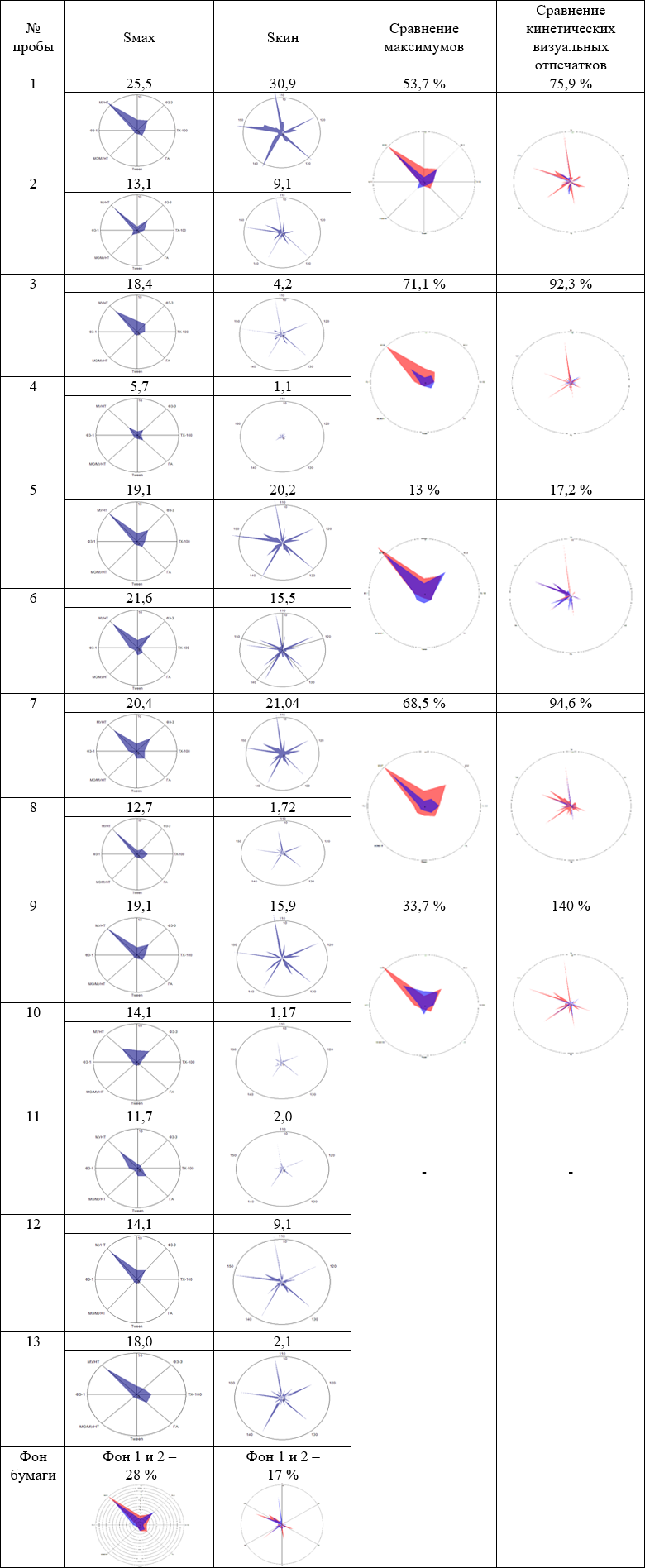An Innovative Approach to Assessing the Quality of Organoleptic Properties of Base Polymers in Orthopedic Dentistry
Modern technologies using an «electronic nose» imitating the human sense of smell open up new prospects for the objective assessment of the organoleptic properties of polymer materials. The purpose of the study was to compare the level of emissions of volatile organic compounds from modern base materials used in various technological processes for the manufacture of removable denture structures, as well as to assess the possible organoleptic properties of the finished dentures in comparison with known analogues using an «electronic nose» gas analyzer. For this purpose, samples were made from different polymer base materials in the amount of 26 pieces, which were studied using an “electronic nose” gas analyzer using the author’s method [Kuchmenko et al., 2023]. The study confirmed the effectiveness of the proposed improved technology in reducing the noise level of volatile organic compounds in samples made from the «Belakril-E GO» base material by 29 % compared to similar samples produced using standard technology. A reduction in the amount of volatile organic compounds that can cause unwanted odors confirms the higher purity and quality of the polymer and will contribute to a more comfortable adaptation of patients to removable dentures made from this polymer.
Figures


Ryzhova I.P., Shtana V.S., Chuev V.V., Kuchmenko T.A. 2024. An Innovative Approach to Assessing the Quality of Organoleptic Properties of Base Polymers in Orthopedic Dentistry. Challenges in Modern Medicine, 47(2): 237–247 (in Russian). DOI: 10.52575/2687-0940-2024-47-2-237-247





While nobody left any comments to this publication.
You can be first.
Kuchmenko T.A., Umarkhanov R.U., Zvyagina O.V. 2023. Development of Multiple Analytical Labels for Volatile Organic Compounds Based on the Results of Sorption on Chitosan CdS Quantum Dots without and with Modification with Rhodamine 6G. Analytics and Control. 27(37): 129–140 (in Russian).
Chizhov Yu.V., Maskadynov L.E., Maskadynov E.N., Alyamovsky V.V., Baginsky A.L., Zhidkova S.V., Koryakina O.S., Moiseenko S.A. 2015. Control of the Content of Free Acrylic Monomers in Domestic Base Plastics of Removable Dentures (Experimental Study). Siberian Medical Review. 6(96): 69–73 (in Russian).
Chuev V.V., Janashia V.T., Ryzhova I.P., Shtana V.S., Denisova V.Yu. 2019. Technological Aspects of Work with Non-Precurity Dental Polymers. Belgorod State University Scientific Bulletin. Medicine. Pharmacy Series. 42(3): 356–363 (in Russian). doi: 10.18413/2075-4728-2019-42-3-356-36
Shtana V.S., Ryzhova I.P. 2019. The Review of Modern Basic Polymers in Orthopedic Stomatology. Belgorod State University Scientific Bulletin. Medicine. Pharmacy Series. 42(2): 224–234 (in Russian). doi: 10.18413/2075-4728-2019-42-2-224-234
Kuchmenko T. A., Lvova L.B. 2019. A Perspective on Recent Advances in Piezoelectric Chemical Sensors for Environmental Monitoring and Foodstuffs Analysis. 7(3): 39–45.
Kuchmenko T. A., Lvova L.B. 2022. Chemoresponsive Materials: Smart Materials for Chemical and Biological Stimulation. Piezelectric Chemosensors and Multisensory Systems. 16(2): 567–603.
The work was carried out without external sources of funding.